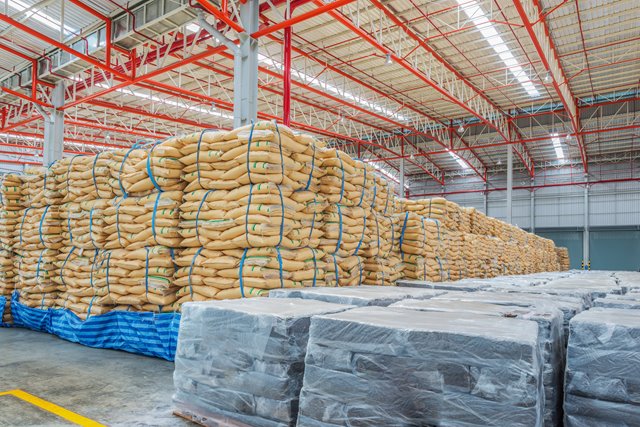

The Recipe of Success for your food company
Foodware 365 help your company reach that next level using their knowledge and intelligent software solutions in food and IT. They are experts in the food field, driven by an insatiable appetite for success. They don't just offer business software for food companies, but a completely innovative software platform that makes the very latest technological advancements available to every food company. Everything they do generates data and you can easily make use of these insights to grow your business. Develop the right recipe to make your food company successful.
Based on years of knowledge and experience, Foodware 365 have developed a platform that is seamlessly integrated with Microsoft Dynamics 365.
It offers the functions you expect from a complete software platform, in combination with food specific functionality for production and trading companies.
This allows your food company to move forward, now and in the future.

The challenges in your food industry
Regardless of your business industry, be it Fresh Produce, sweets or bread, Foodware365 know your market and the specific issues that challenge your success. Which challenges are the order of the day for your business?
Fresh Produce
How do you ensure that you can always deliver on time and with the right quality?Production and wholesale
How do you focus on supply chain integration? How do you manage to continuously meet consumer demand? Or how do you provide real-time control information?
Food companies are not identical. A food production company cannot be compared with a wholesaler. Both struggle with their own issues. While a production company sources its own products and has to deal with production planning and quality, a trading company concentrates on procurement, sufficient stock levels and product turnover. There are however a number of areas that apply to each and every food company:
-
The customer at centre stage
Every food company puts its customers first and foremost because consumers are becoming increasingly more demanding and have higher expectations.
There is an ever-increasing demand for health, convenience and sustainability, but also for organic, gluten-free, vegetarian or vegan products.
The percentage of consumers eating less meat is on the increase, leading to plenty of movement within the food market.
Food companies try to capitalise on this trend in an agile, nimble way, purely in order to remain competitive.
-
Trust requires chain transparency
The world is demanding transparency throughout the food chain. Trust in nutrition is no longer self-evident. Cases of food fraud occur more regularly than desirable. The challenge for every food company is to be able to offer this transparency. The majority of food companies have to deal with product recalls, for example. Every company is vulnerable. New regulations and quality standards to safeguard food safety and quality as well as prevent fraud appear every day. Various initiatives including blockchain can play a role in this process. Investment in technological development ensures that food companies can continue to comply with increasingly more stringent rules and regulations. -
Chain integration: from source to end-user
Food companies are redoubling their efforts to achieve chain integration.
It is of the essence that you can trace your product from farm to fork and keep this path as short as possible.
Better product monitoring leads to greater insight and therefore to a situation in which quality can be guaranteed, supply and demand more closely aligned, cost efficiencies generated and greater reliability amongst chain partners can be achieved.
Ultimately, you want the supply chain to be optimally aligned with customer expectations.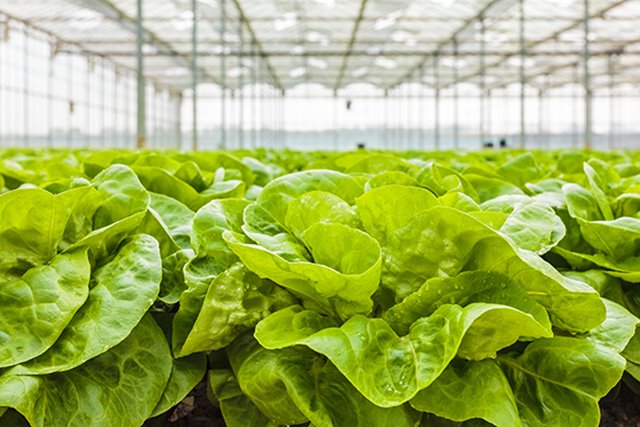
-
Accurate demand forecasting
Demand forecasting is an interesting challenge for every food company.
When you reach the stage you can predict future demand, you can plan when exactly do you need what in terms of product, people and resources.
This can lead to various benefits, such as cutting food waste, enhancing reliability towards customers and avoiding the need to turn a customer down due to product unavailability.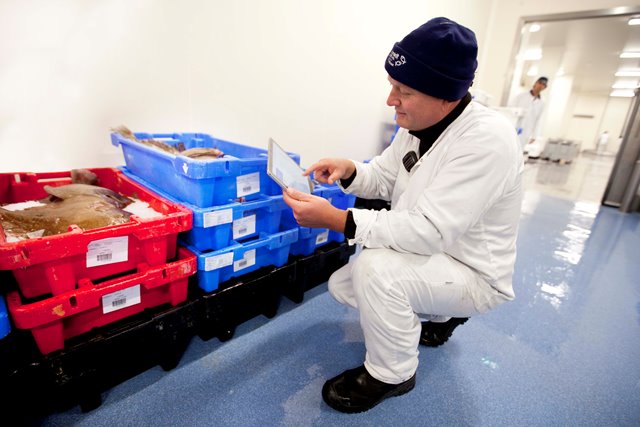
-
New technologies, new challenges
Customer buying behaviour is constantly changing.
Products are sourced in other ways thanks to new technologies.
Online shopping is constantly on the rise.
This is a challenge for food companies, finding a way to address these developments.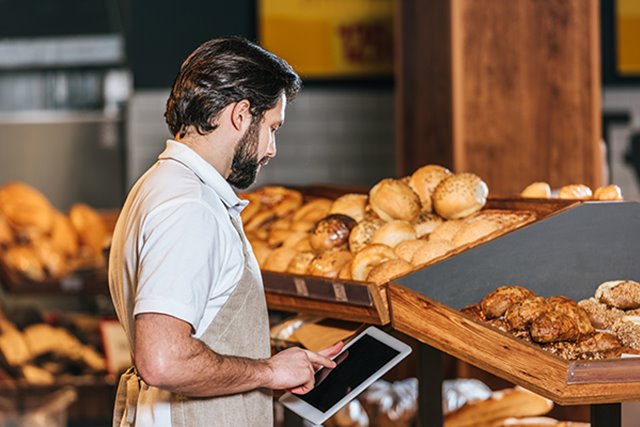
-
Clear demand for real-time management information
As a food company, in order to be able to stay in control on a daily basis and take decisions based on accurate information, there is a need for real-time insight.
Is today's production on schedule?
What was my margin on certain articles?
Are my buyers performing up to standard?
You want to be able to see at a glance how your company is doing, so that you can take decisive action when necessary.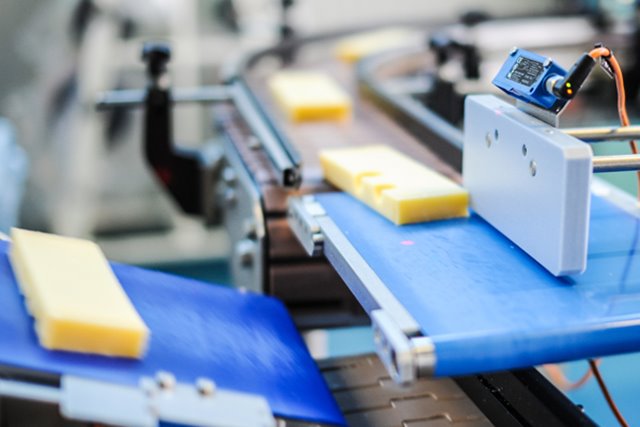
-
Data security is key to successful digitalisation
Increasing digitalisation in the food market is also a risky business. You don't want your recipes to find their way outside the organisation. Data security is a major asset. Digitalisation provides an opportunity for linking everything to each other, whereby data no longer needs to be entered in duplo and errors can be avoided. Crystal-clear guidelines regarding digitalisation are of crucial importance in this process. Your organisation must be able to move at the right speed whereby decisions do not work against you and are not taken at the wrong moment.
-
Fast handling in your warehouse
As a food company, you want to be constantly reassured that your warehouse and stock levels are in good shape. In order to keep inventory at the right level - as low as possible - you as a food company need to find the right alignment between supply and demand. Insight into current stock levels is therefore a must. Products with the shortest shelf-life need to be moved the fastest, taking customer-specific requirements into account. An accompanying warehouse challenge in this respect is a seamless orderpicking process, so that products can be delivered to the customer faster and fresher (if appropriate). In some cases, you are dealing with large volumes of product that need to be moved. And you will want to keep a detailed inventory in these cases as well. You will want to be able - at pallet and location level - to see exactly where your inventory is at a given moment, so that you can pick quickly, even at crate or article level. -
More countries, more languages
Your food company does business in numerous countries, operating in more than one time zone as well as various currencies and languages. Rules and regulations vary from country to country. You want to ensure that all these aspects of doing business abroad are an intrinsic part of your accounting system.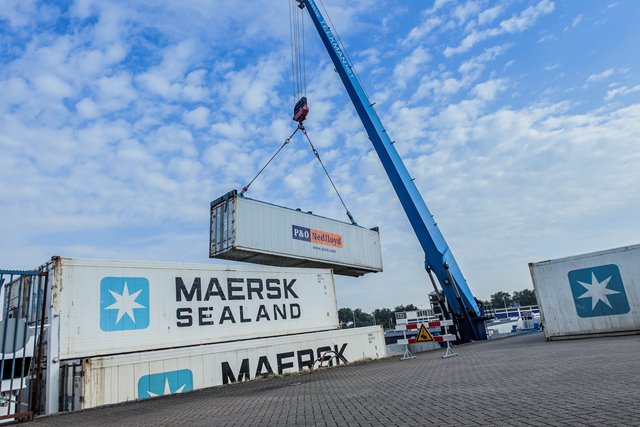
-
Being able to conduct intercompany transactions
How do you ensure that with numerous entities falling under one holding company, you can keep track of your administration and the transactions that take place amongst them? When you physically move inventory from one entity to another, you naturally want to account for this properly. But you also want to give the customer the opportunity to order from one entity and that you can deliver directly from the other. Without this causing accounting issues.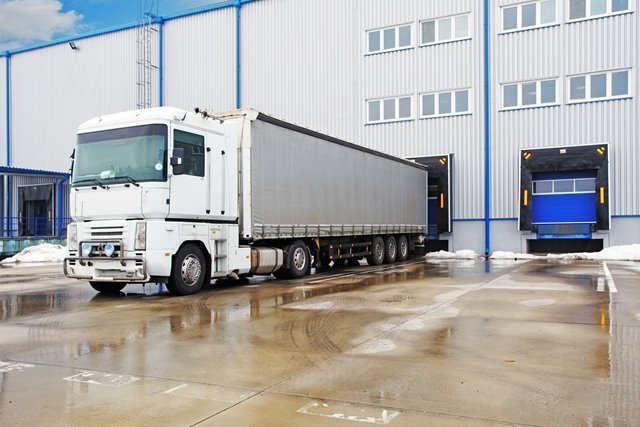
-
Challenges in the planning process
A production company is struggling with the issue of wanting to always have the data at hand over what must be produced and on which production line, the number of people and amount of resources required and the cost involved. Challenges in the planning process; this all comes together at an inventory level. In this way your company has the knowledge over the volume of sufficient resources, semi-finished products and packaging materials that can ultimately ensure a sufficient number of end products to be ready for sale. -
Satisfying the highest quality standards
You want to be assured of quality control as well as mitigate the risk during the production process.
Each of the raw materials, semi-finished products or end-products must satisfy the highest quality standards these days.
You want to be able to guarantee both durability and the requested quality.
But you must also fulfill the many consumer requirements related to allergens, for example.
Full compliance with your recipes is an important challenge in this process.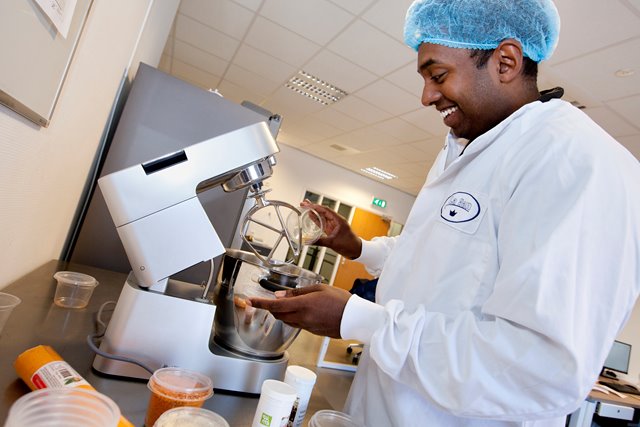
-
Matching sourcing and sales
In some food trading companies, it can happen that commodities never even see the inside of a warehouse. And as with any other food company, it is then a question of precisely matching sourcing and sales. However, there are a number of related issues to take into account. You have to take customs and export documentation into account. You need insight into container information. And you naturally want to know what costs you are incurring regarding import and export, so that you can ultimately exactly calculate the proceeds.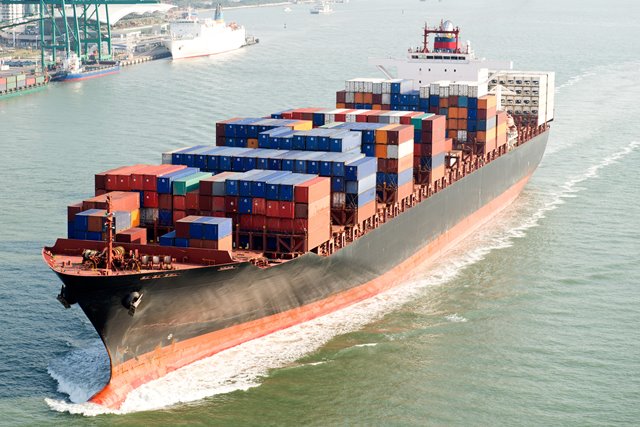
The innovative platform for the food industry
The world is changing and the pace of change is only increasing. The more flexible you organise your business, the better you can respond to change. And the better and faster you can respond to market changes, government requirements and technological innovations, the better you are able to distinguish yourself from your competitors. Joining these continuous innovations can be very easy thanks to the Microsoft Intelligent Cloud. The insights gained by allowing ERP to enter into the power of the cloud and the predictive intelligence that we can activate with it will make your company successful in the ever-moving food market. This solution is called Aptean Food & Beverage ERP Foodware 365 Edition.
Discover how we can help - contact us
Discover how we can help - contact us








